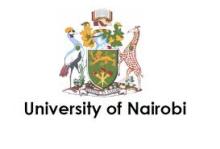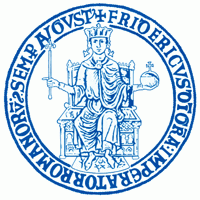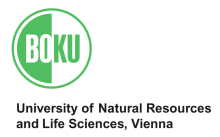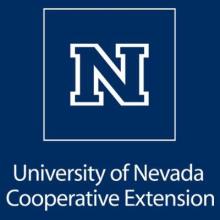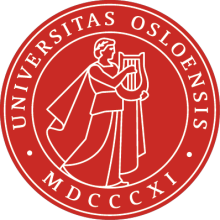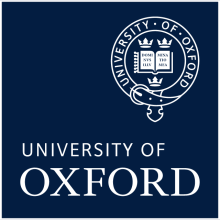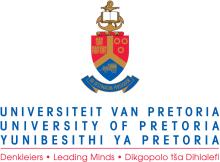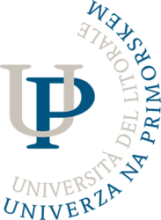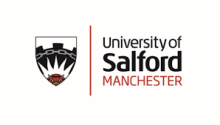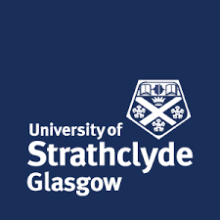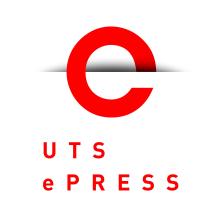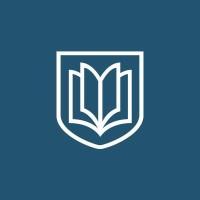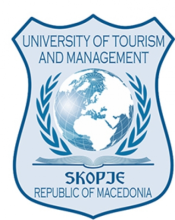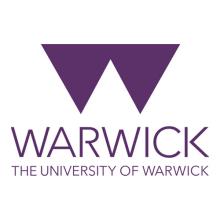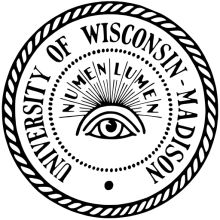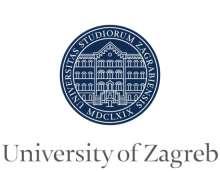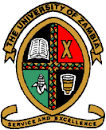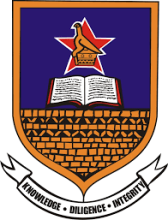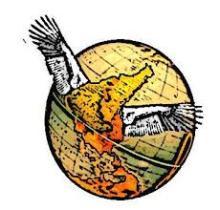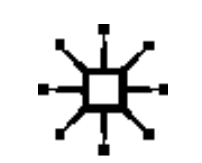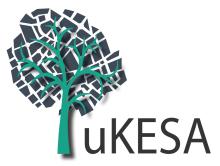A Biblioteca Land Portal inclui recursos de mais de 1.890 provedores de informações nacionais e internacionais. Saiba mais sobre as organizações e instituições que utilizam o Land Portal para partilhar as suas pesquisas, dados e histórias de acesso aberto.
University of Maine
Founded in 1865, the University of Maine is a land and sea grant institution, and the flagship campus of the University of Maine System. Located in Orono along the banks of the Stillwater River, this vibrant and dynamic university serves Maine, the nation, and the world through its teaching, research and outreach mission. UMaine students come from every county in Maine, more than 45 other states and 65 countries. UMaine offers 90 undergraduate majors and academic programs, 70 master’s degree programs, and 35 doctoral programs. Opportunity for all members of the University of Maine community and its constituents is a cornerstone of our mission.
The University of Maine offers a strong traditional education at an affordable price. UMaine is one of New England’s premier universities. We help students create success stories — with a wide variety of programs and opportunities — and we do so with world-class faculty members, internationally recognized research, first-rate facilities, and a friendly, safe atmosphere located near some of the best year-round recreation sites in the nation.
We want you to visit our campus, explore our website and discover UMaine’s unique opportunities.
University of Nairobi
Our Vision is to be a world-class university committed to scholarly excellence.
Our Mission is to provide quality university education and training and to embody the aspirations of the Kenyan people and the global community through creation, preservation, integration, transmission and utilization of knowledge.
Core Values
In order to realize the above vision and mission, certain shared values shall be nurtured. There is great need for the University to be guided by the right values derived from the virtues and moral standards of the Kenyan and wider society.
Core Functions
Teaching and Learning: The university offers innovative , relevant and market driven academic programmes , both at undergraduate and postgraduate levels with inbuilt quality control systems the university also provides an environment and policy framework for undertaking high quality and relevant research
University of Naples Federico II
The University of Naples Federico II (Italian: Università degli Studi di Napoli Federico II) is a university located in Naples, Italy. Founded in 1224 it is the oldest public non-religious university in the world, and is now organized in 13 faculties. It was Europe's first university dedicated to training secular administrative staff, and one of the oldest academic institutions in continuous operation. Federico II is the third University in Italy by number of students enrolled, despite its huge dimensions it still represents one of the best Universities in Italy being an excellence in particular for research; in 2015 it was ranked among the first 100 universities in the world by citations per paper.] As of 2016 it is the only generalist Italian university in the Times higher education reputation, which considers the best 200 best universities in the world. The university is named after its founder Frederick II. From October 2016 the University hosts the first ever Apple IOS Developer Academy.
Source: Wikipedia (consulted d.d. February 21st 2018)
University of Natural Resources and Life Sciences
The University of Natural Resources and Life Sciences, Vienna, or simply BOKU (derived from its German name, Universität für Bodenkultur Wien), founded by the Austrian Empire in 1872, is an education and research centre for renewable resources in Vienna. BOKU combines fundamental and applied expertise in the fields of natural sciences, engineering and biotechnology as well as social and economic sciences to enhance the knowledge basis for sustainable management of natural resources. It is a member of the Euroleague for Life Sciences (ELLS) university network. There are currently around 13,000 students from over 100 countries enrolled at BOKU.
Source: Wikipedia (d.d. November 10th 2017)
University of Nevada Cooperative Extension
We're the outreach college of the University that brings you information to solve problems and deal with critical issues. We have 18 offices to serve you, whether you live on a ranch near the remote Rubies or in an urban setting in Las Vegas.
Our more than 200 personnel - with the help of volunteers - deliver non-degree, educational programs in these areas:
- Agriculture
- Children, Youth and Families
- Community Development
- Health and Nutrition
- Horticulture
- Natural Resources
We couldn't do it without the help of our federal and county partners, and the other groups, agencies, businesses and individuals with whom we collaborate.
University of Oslo
The University of Oslo was founded in 1811 as the first in Norway.
Located mainly on Blindern Campus in the northern part of Oslo, UiO has eight faculties:
- Faculty of Medicine
- Faculty of Dentistry
- Faculty of Law
- Faculty of Theology
- Faculty of Humanities
- Faculty of Mathematics and Natural Sciences
- Faculty of Social Sciences
- Faculty of Education Sciences
The capital university is also home to the Viking Ship Museum, the Historical Museum and the Natural History Museum, a Main Library with 3.6 million holdings and a wide range of associated units and centres.
The University of Oslo has an operating annual budget of NOK 6.6 billion, and most of its funding comes from the Norwegian Government.
Ranking
UiO is the highest ranked institution of education and research in Norway - and one of the World's Top 100 universities, according to the Shanghai World Ranking. With five Nobel Prize winners, UiO has a strong track record of pioneering research and scientific discovery.
Research
As a classical university with a broad range of academic disciplines, UiO has top research communities in most areas. Moreover, UiO currently has 8 National Centres of Excellence and a strategic focus on interdisciplinary research in the field of energy and life sciences in particular. As a broadly based, non-profit research university, UiO has access to good public funding schemes. Lab and office facilities, libraries and technical support are at the high end.
Education
UiO offers more than 800 courses in English at all levels, around 40 Master’s degree programmes taught entirely in English and several PhD programmes. UiO focuses on research-based education and attracts highly qualified students from all over the country.
Internationalization
UiO attracts students and researchers from all over the world. As of 2015, 15 percent of the student population is from foreign countries. 22 percent of the academic staff and 31 percent of the PhD candidates are from abroad.
University of Ottawa Press
Located in Canada’s national capital, the University of Ottawa Press (UOP) is the publishing arm of one of Canada's top research universities and one of the world's top bilingual universities.
UOP is also North America's only fully bilingual university press and oldest French-language university press. Click here to learn more about UOP commitment to the fait français and to bilingualism.
Founded in 1936 as Les Éditions de l’Université d’Ottawa, UOP began publishing in English during the 1940s. Click here to learn more about UOP's 80-year history.
UOP published more than 1100 monographs and edited volumes since 1936. UOP publishes a dozen books in French and another dozen in English each year. Since 2009, simultaneously releases both print and digital versions for every new title, and has curated a significant open access collection. Click here for more info on our OA program.
University of Oxford
The University of Oxford is a collegiate research university located in Oxford, England. It has no known date of foundation, but there is evidence of teaching as far back as 1096, making it the oldest university in the English-speaking world and the world's second-oldest university in continuous operation. It grew rapidly from 1167 when Henry II banned English students from attending the University of Paris. After disputes between students and Oxford townsfolk in 1209, some academics fled north-east to Cambridge where they established what became the University of Cambridge. The two "ancient universities" are frequently jointly referred to as "Oxbridge".
The university is made up of a variety of institutions, including 38 constituent colleges and a full range of academic departments which are organised into four divisions. All the colleges are self-governing institutions within the university, each controlling its own membership and with its own internal structure and activities. Being a city university, it does not have a main campus and instead its buildings and facilities are scattered throughout the city centre. Most undergraduate teaching at Oxford is organised around weekly tutorials at the colleges and halls, supported by classes, lectures and laboratory work provided by university faculties and departments.
The university operates the world's oldest university museum, as well as the largest university press in the world and the largest academic library system in Britain. Oxford has educated many notable alumni, including 28 Nobel laureates, 27 Prime Ministers of the United Kingdom and many heads of state and government around the world. Oxford is the home of the Rhodes Scholarship, one of the world's oldest and most prestigious international scholarships, which has brought graduate students to study at the university for more than a century.
Source: Wikipedia (d.d. November 13th 2017)
University of Pretoria
Vision
To be a leading research‐intensive university in Africa, recognised internationally for its quality, relevance and impact, as also for developing people, creating knowledge and making a difference locally and globally.
Mission
In pursuing recognition and excellence in its core functions of research, teaching and learning, and integrating engagement with society and communities into these, the University of Pretoria will use quality, relevance, diversity and sustainability as its navigational markers.
Values
The members of the University of Pretoria believe that:
our community of scholars must be founded on the pursuit of knowledge through research, teaching and learning, with membership acquired on the basis of intellectual merit, ability and the potential for excellence; and that
differing perspectives, arising from diverse backgrounds and histories that define our identities, deepen scholarly inquiry and enrich academic debate.
We cherish:
academic freedom, creative and innovative thought, ethical standards and integrity, accountability and social justice; and
our staff and students as the University’s core asset.
We foster:
an inquiry‐led and evidence‐based approach to creating knowledge; and
academic citizenship, whereby we commit ourselves to harnessing our intellectual abilities in the interest of our nation and humanity.
We recognise that:
in a resource‐constrained world where vast disparities remain, the University must endeavour to produce graduates who appreciate the importance of community service, entrepreneurial endeavours and innovative actions in generating employment and development in our local communities.
University of Salford, Manchester
Our forward thinking approach has powered progress for 125 years. Today, our unstoppable institution is bolstered by countless industry initiatives and innovative research programmes, building a thriving education community in Salford and beyond.
University of Strathclyde Glasgow
The University of Strathclyde (Scottish Gaelic: Oilthigh Shrath Chluaidh) is a public research university located in Glasgow, Scotland. Founded in 1796 as the Andersonian Institute, it is Glasgow's second-oldest university, having received its royal charter in 1964 as the first technological university in the United Kingdom. Taking its name from the historic Kingdom of Strathclyde, it is Scotland's third-largest university by number of students, with students and staff from over 100 countries.
The institution was named University of the Year 2012 by Times Higher Education and again in 2019, becoming the first university to receive this award twice.The annual income of the institution for 2017–18 was £304.4 million of which £68.9 million was from research grants and contracts, with an expenditure of £304.0 million.It is one of the 39 old universities in the UK comprising the distinctive second cluster of elite universities after Oxbridge.
University of Sydney
Shaping change and improving lives from the start
Our founding principle as Australia’s first university was that we would be a modern and progressive institution. It’s an ideal we still hold dear today.
When William Charles Wentworth proposed the idea of Australia’s first university in 1850, he imagined “the opportunity for the child of every class to become great and useful in the destinies of this country”.
We’ve stayed true to that original value and purpose by promoting inclusion and diversity for the past 160 years.
It's the reason that, as early as 1881, we admitted women on an equal footing to male students. Oxford University didn't follow suit until 30 years later, and Jesus College at Cambridge University did not begin admitting female students until 1974.
It's also why, from the very start, talented students of all backgrounds were given the chance to access further education through bursaries and scholarships.
Today we offer hundreds of scholarships to support and encourage talented students, and a range of grants and bursaries to those who need a financial helping hand.
University of Technology Sydney ePress
UTS ePRESS is the digital, open access scholarly publishing arm of the University of Technology Sydney (UTS). We publish high quality scholarly titles across a wide range of academic disciplines, with particular strengths in the humanities, arts and social sciences.
Focusing on open access digital formats, UTS ePRESS currently publishes scholarly journals, books and conference proceedings. We are the leading scholarly publisher of peer reviewed open access journals in Australasia.
UTS ePRESS is a not-for-profit publisher. There are no charges to access UTS ePRESS content and no publishing fees for authors.
University of Tehran
The University of Tehran (Persian: دانشگاه تهران), also known as Tehran University and UT, is Iran's oldest modern university. It is also one of the most prestigious universities in Iran. Based on its historical, socio-cultural, and political pedigree, as well as its research and teaching profile, UT has been nicknamed "The mother university of Iran" and it is the symbol of higher education in Iran. It is always ranked as one of the best universities in Iran in national and international rankings. It is also the premier knowledge producing institute among all OIC countries. The university offers 111 bachelor's degree programs, 177 master's degree programs, and 156 Ph.D. programs. Many of the departments were absorbed into the University of Tehran from the Dar al-Funun established in 1851 and the Tehran School of Political Sciences established in 1899.
The main campus of the University is located in the central part of the city. However, other campuses are spread across the city as well as in the suburbs such as the Baghe Negarestan Campus at the central eastern part of the city, the Northern Amirabad Campuses at the central western part of the city and the Abureyhan Campus in the suburb of the capital. The main gate of the University with its specific design and modern architecture (at Enghelab Street at the main campus) is the logo of the University and in a more general sense, a logo of education in Iran. The University is one of the city's attractions, hosting many international and cultural events attracting academia, foreign tourists as well as local residents. The major festive of Friday Prayers of the capital is held at the University’s main campus every Friday.
Admission to the university's renowned undergraduate and graduate programs is very competitive and is limited to the top one percent of students who pass the national entrance examination administered yearly by the Ministry of Science, Research and Technology. Tehran University consistently makes the number one choice of qualifying applicants among all other universities of Iran.
Source: Wikipedia (consulted d.d. February 23rd 2018)
University of Toronto Press
University of Toronto Press is Canada’s leading academic publisher and one of the largest university presses in North America, with particular strengths in the social sciences, humanities, and business. The Book Publishing Division is widely recognized in Canada for its strength in history, political science, sociology, Indigenous studies, and cultural studies. Internationally, UTP is a leading publisher of medieval, Renaissance, Italian, Iberian, Slavic, and urban studies, as well as studies in book and print culture.
With the publication of influential authors and award-winning research, as well as a continuing dedication to groundbreaking new scholarship and innovative texts for the higher education market, UTP has firmly established its reputation for excellence.
University of Tourism and Management
Our aim (UTMS) is to provide quality in education, equal to those of the best schools in Europe and all over the world, where students are prepared to successfully incorporate themselves in the highly competitive and ever-changing business market. Moreover, we strive to implement continuous quality in all aspects of the University, thus being a role model to our students and to be distinguished by its excellence in study methodology, high quality learning environment, its passion for innovation and its readiness to accept challenges in its educational mission.
The mission of the UTMS is to foster academic excellence and student achievement at both the graduate and undergraduate levels in the field of tourism, economy, entrepreneurship, human resources management and marketing management. Students are provided with a strong academic foundation with access to various specialized knowledge bases and they are prepared to become productive, competent professionals, and responsible citizens in the diverse, dynamic global arena.
University of Warwick
The University of Warwick is a plate glass research university in Coventry, England. It was founded in 1965 as part of a government initiative to expand access to higher education
University of Wisconsin-Madison
The University of Wisconsin–Madison is a public research university in Madison, Wisconsin, United States. Founded when Wisconsin achieved statehood in 1848, UW–Madison is the official state university of Wisconsin, and the flagship campus of the University of Wisconsin System. It was the first public university established in Wisconsin and remains the oldest and largest public university in the state. It became a land-grant institution in 1866.[6] The 933-acre (378 ha) main campus includes four National Historic Landmarks.
Source: Wikipedia
University of Zagreb
Vision and mission
The mission of the University is based on scientific and artistic research and aims at sustainable development, artistic creativity and professional work as well as organization and performance of university studies and, exceptionally, occupational studies.
As a central and leading institution, the University gives special regard to carrying out the programmes of strategic interest for the Republic of Croatia and for the development of regional and local communities. All university activities enhance the development of personality and promote human rights and fundamental freedoms.
University of Zambia
Vision
To be a Provider of World Class Services in Higher Education and Knowledge Generation
Mission
To Provide Relevant Higher Education Through Teaching, Research and Community Service
Management Philosophy
The University will embrace a participatory management style that will motivate employees, provide a work environment that is conducive to high productivity, teamwork in which leadership is by example, provide effective communication and guidance, which will be accessible to all, and promote individual growth.
University of Zimbabwe
The University of Zimbabwe (UZ) in Harare, is the oldest and formerly largest university in Zimbabwe. It was founded through a special relationship with the University of London and it opened its doors to its first students in 1952. The university has ten faculties (Agriculture, Arts, Commerce, Education, Engineering, Law, Science, Social Studies, Veterinary Sciences and College of Health Sciences) offering a wide variety of degree programmes and many specialist research centres and institutes. The university is accredited through the National Council for Higher Education, under the Ministry of Higher and Tertiary Education. English is the language of instruction. Although once a very successful university, UZ has been facing challenges since 2008 and now the University is on a rebounding drive. Major work is being done to uplift the status of the University. Refurbishments are being carried out on the Main campus and many facilities are being upgraded to make the university an International Academic Brand. The university has faced criticism for awarding fraudulent degrees to members of the Mugabe regime particularly the obscure PhD given to Grace Mugabe.
Source: Wikipedia (d.d. November 9th 2017)
Upside Down World
Upside Down World is a news and analysis outlet covering social movements and politics in Latin America.
Since 2003, we have provided coverage that addresses the imbalance of political and economic power in our hemisphere, highlights voices and victories from social movements, traces the impact of Washington’s imperialism, and takes a critical and investigative look at the region’s political landscape.
We live in and report on an upside down world, where the poor and oppressed majority of society suffer as political and financial power is concentrated in the hands of a few. Our media organization’s name is based on the work of the late Uruguayan author Eduardo Galeano, who wrote, “If the world is upside down the way it is now, wouldn’t we have to turn it over to get it to stand up straight?”
With a view, as the Zapatistas say, “from below and to the left,” we are a community of writers, activists, and editors who, through empowering and educational reporting, aim to flip the world upside down… or right side up.
URAIA
Uraia is the premier National Civic Education Organisation in Kenya. It has been in existence since 2000 and has been working to contribute towards the progress of Kenya through the development of Kenya’s most important resource – Kenyans. Uraia began its journey as the National Civic Education Programme (NCEP) when a formal partnership was struck between 70 local Civil Society Organisations (CSOs) – who became Implementing Partners (IPs) – and a group of Development Partners, who signed a Memorandum of Understanding (MoU) that outlined the basis for cooperation between the Development Partners as well as the joint funding mechanisms of the Programme.
NCEP was implemented between August 2000 and September 2002. It was aimed at consolidating a mature political culture in which citizens would be more aware of their rights and responsibilities. This is in addition to effective participating in broadening democracy in the country. The programme (NCEP), while focusing on governance and electoral processes, was geared towards equipping citizens with the relevant knowledge to contribute to, and participate actively and meaningfully in the country’s socio-economic, political and development processes. By the time the country held elections in December 2002, the programme had successfully carried out approximately 60,000 civic and voter education activities in all of Kenya’s eight (former) provinces; reaching nearly a fifth of the country’s total population.
After the peaceful General Elections held in 2002, it became clear to NCEP that while civic education had played a critical part in enabling Kenya’s citizens to understand the relationship between them and the State, the new political environment and the push towards constitutional reform would require a drastic restructuring and reviewing of the NCEP programme. This resulted in significant changes in the way the programme was managed and run, particularly in relation to its management and branding. A decision was made to form a Programme Steering Committee that would give both the consortia (which by then included National Muslim Civic Education Consortium (NAMCEC), Constitution and Reform Education Consortium (CRECO), Consortium for the Empowerment and Development of Marginalised Communities (CEDMAC) and Ecumenical Civic Education Consortium (ECEP) and the Donor Committee a say in the way the Programme was managed, monitored and implemented. It was also decided that the Programme should be locally-owned (and managed) and have a name that resonated with ordinary citizens. More importantly, it was felt that the Programme needed to develop Kenyans’ sense of belonging to the country by promoting the idea of citizenship and all that it entails, including patriotism, loyalty, and respect for the law. NCEP’s second phase was thus re-branded Uraia, the Kiswahili word for citizenship.
In 2005, NCEP’s second phase (Uraia) shifted its focus to five key areas that were considered critical under the new political dispensation: nation-building; democratisation; good governance; constitutionalism; and human rights, with the three cross-cutting issues of environment, gender and HIV/AIDS. Uraia developed several key strengths through which the Programme has been able to accomplish some of its initiatives, despite the many external challenges. For example, the Programme included home-grown/indigenous ideas in its information, education and communication materials.
However, the 2007 General Elections and the subsequent violence forced Uraia to re-examine its mandate and re-formulate its objectives in relation to the second stage of the Programme’s activities. This second stage was also a response to the new challenges facing the country after the polls, including large numbers of Internally Displaced Persons (IDPs) that were living in camps, in many parts of the country.
Development Partners and other stakeholders pooled resources together to respond to the post-election crisis through Uraia under the National Response Initiative (NRI). This was a rapid response mechanism that focused on promoting peace and resolving conflict among the various affected communities in the country.
In 2010, Uraia began initiating mechanisms through which the Programme could become more self-sustaining and less dependent on the basket fund provided by donors. Uraia Trust, established in 2011, will allow for longer-term planning and bring synergy to the Programme. It enable it to reach a larger number of citizens and stakeholders wishing to be part of the country’s reform agenda.
Find the Uraia 2011 – 2015 Strategic Plan here.
URBAN DESIGN International
- An international forum for discussion and debate over issues of urban design and management
- Stands as a trustworthy source of information on issues of urban design and management, for researchers, urban designers, architects, planners, landscape architects, developers and others
- Presents original articles, reviews, books and expert commentary
Urban Knowledge Exchange
The Knowledge Exchange is a response to an identified need for increased information exchange in the Southern African region. It has been developed as a broad collaboration of partners, with the CSIR acting as the custodian.
The purpose of the Urban Knowledge Exchange is to improve the delivery of better quality human settlements, towns and cities by making reliable, evidence-based knowledge more widely accessible. It encompasses thematic areas such as sustainable human settlement development and management, better infrastructure and services, access to well-located land, efficient shelter production, a more functional residential property market, improved transport networks, more equitable urban development, good governance, building resilience and responding to climate change, and promoting more affordable housing finance.
The knowledge repository is devoted to promoting innovation and good practice for cities, towns, and villages through offering links to an online library, knowledge directory, upcoming events, moderated debates, portal (links to further hubs), and content uploading facility. With the aim to collaborate with existing platforms on various locational scales the project will further provide opportunities for global information sharing.
Urban LandMark
"Urban LandMark" is short for the Urban Land Markets Programme Southern Africa. Based in Pretoria, the programme was set up in May 2006 with seven years of funding from the UK's Department for International Development until March 2013. The initiative is now hosted at the Council for Scientific and Industrial Research in South Africa.
Urban LandMark was designed to play a short-term, catalytic role. Between 2006 and 2013 it was financially managed by FinMark Trust. FinMark Trust is already applying the 'making markets work for the poor' thinking in financial and housing markets, which are relevant to the urban land markets question.
What we do
Urban LandMark is working to make urban land markets work for the poor by:
- Defining what 'making markets work for the poor' means for urban land and developing a distinctive voice for this approach,
- Mobilising diverse players, including the private sector and civil society, to come up with innovative ways to achieve this objective,
- Promoting policy dialogue between people , and
- Bringing about change in government policy and implementation, and in private sector praxis.
Five areas of activity
Research
Research projects cover four sectors: people, place, governance and the market, in an integrated way.
Dissemination
Research is disseminated widely to industry, government, NGOs and other interested people.
Support
Individuals affiliated with Urban LandMark are available to government and the private sector to take part in task teams.
Professional development
To ensure industry professionals incorporate MMW4P ideas in their work, we assist with the development of courses and academic exchange programmes as well as forums and seminars.
Networking and advocacy
We develop and maintain relationships with industry and government players, and build partnerships with academic institutions and organisations, local and international, working on urban land issues to share information and participate in joint activities.
Urban Redevelopment Authority
At URA, we adopt a long-term and comprehensive planning approach to formulate strategic plans such as the Concept Plan and the Master Plan to guide the physical development of Singapore in a sustainable manner. Our plans and policies are focused on achieving a quality living environment for Singapore.
To turn plans and visions into reality, we take on a multi-faceted role. We evaluate and grant planning approvals for developments through our Development Control, Urban Design and Conservation guidelines. The guidelines facilitate orderly development and ensure that developments are compatible with the neighbourhood, in line with the longer–term planning intentions for the site.
In addition to our planning function, we are also the main government land sales agent. Through the sale of State land, we attract and channel private capital investment to develop sites to support economic and social objectives. As the conservation authority, we have an internationally recognised conservation programme, and have successfully conserved not just single buildings, but entire districts. We also partner the community to enliven our public spaces to create a car-lite, people-friendly and liveable city for all to enjoy.
In shaping a distinctive city, we promote architecture and urban design excellence, and innovate to build a resilient city of opportunity that fulfils the aspirations of our people.
Urban Training and Studies Institute
The Urban Training and Studies Institute- UTI was established via cooperation between the Housing and Building National Research Centre - HBRC in Cairo and the Institute for Housing and Urban Development Studies- IHS in Rotterdam within the framework of the development cooperation between the Governments of the Netherlands and Egypt.
UTI was officially founded as a result of a second phase of the Egyptian-Dutch cooperation which started in December 1997. Through this cooperation technical and managerial assistance were provided by the Institute for Housing and Urban Development Studies (IHS) from Rotterdam and the Faculty of Geo-Information Science and Earth Observation (ITC).
The assistance provided focused first on capacity and institution building and human resources development which were required for UTI establishment.
Urgente24
Desde 1997, cuando Urgente24.com cobró fuerza, en ese momento dentro de la plataforma dynamo.com.ar/, de FiberTel, por entonces empresa de Cablevisión/TCI2, y luego en forma ya independiente, tiene la convicción de que en la internet el éxito sustentable es consecuencia directa del buen periodismo. Y, en el balance, los aciertos deben sumar más que los errores.
Con la consolidación de la Era Digital, en la que cualquier individuo con acceso a una terminal informática puede acceder fácilmente a una audiencia potencialmente amplia para publicar lo que desee, hay una cierta confusión entre lo que es periodismo y lo que no lo es.
También es cierto que hay un protagonista muy consolidado del universo informativo que son las llamadas Redes Sociales, multitud de individuos que utilizan la Internet para expresarse con libertad.
Luego, hay alguna incertidumbre acerca de cómo proceder cuando se pretende producir contenidos periodísticos creativos y que, a la vez, gocen de credibilidad.
Para las empresas que realizan la comunicación de noticias en forma profesional resulta un desafío ubicarse, en forma apropiada, en el nuevo escenario.
No se trata solamente de diferenciarse, sino también de interactuar con esos individuos coprotagonistas del ciberespacio, permitiendo, de forma transparente, que cualquier persona verifique si la práctica condice con la promesa.


